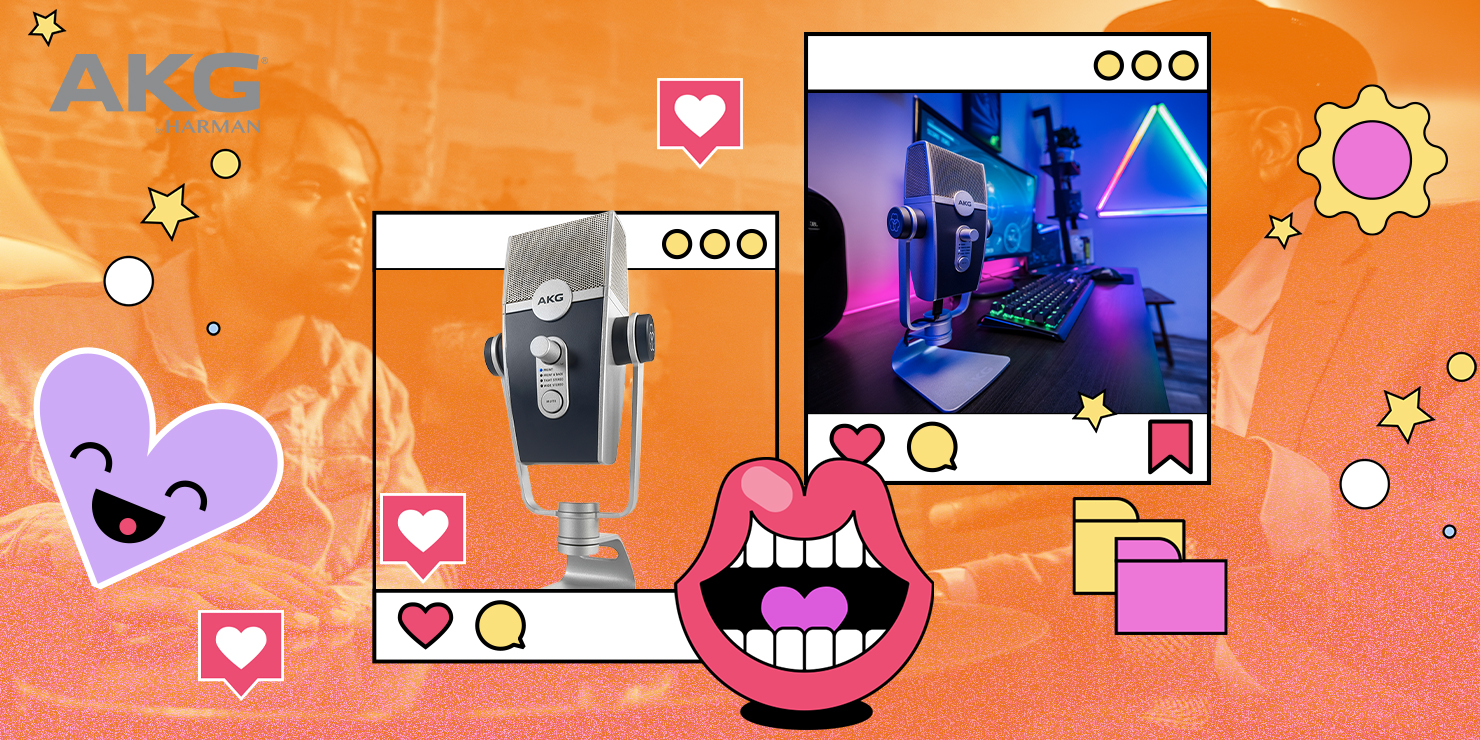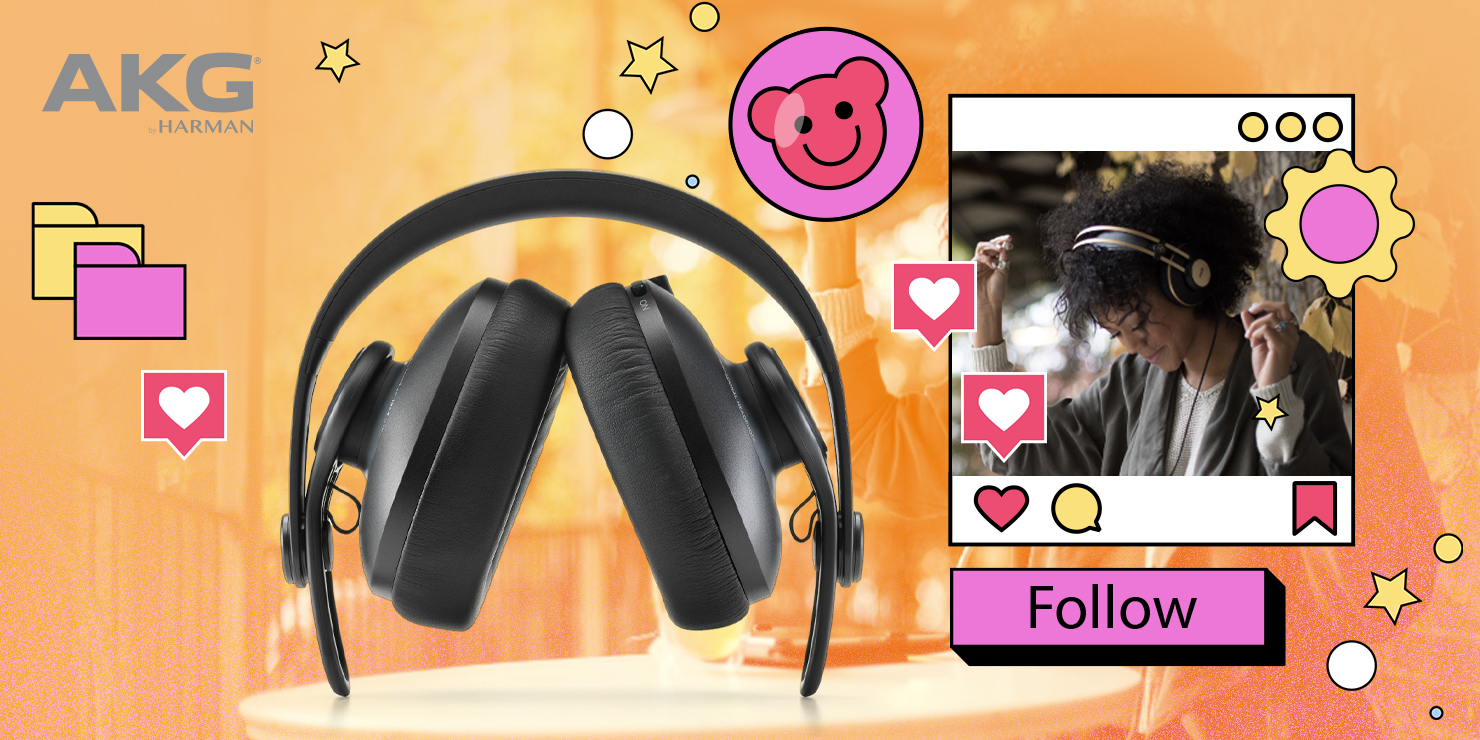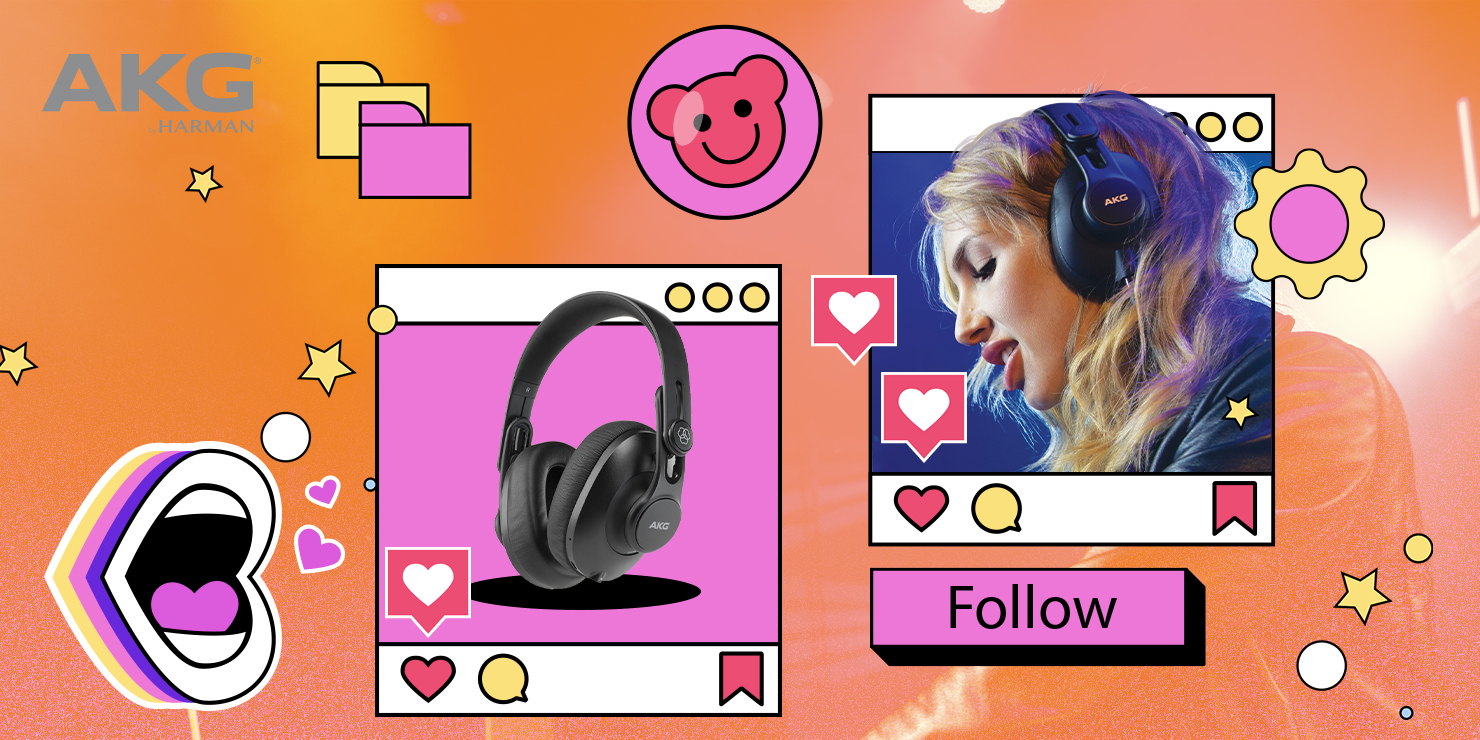Podcasts are becoming an increasingly popular form of content around the world. In Europe and the USA, they collect tens and even hundreds of thousands of plays. Russian podcasters are also not far behind, but right now, there are still a few vacant niches in this area.
If you were about to create your own podcast but had no idea where to begin, this is the text for you. We will tell you how to make cool episodes, together with the author and host of the podcasts "Gossip," "Who By Talking," and "Design Bureau" Rodion Scriabin and the manufacturer of audio equipment HARMAN.
Choose a niche
Podcasts are top-rated right now, but there are still not many of them. Find a niche with fewer podcasts: it's easier to compete there.
Usually, podcasts are interviews with guests, Q&A sessions, news, or recommendations. Find Fact of the Day or Story of the Day podcasts, movie or album reviews, travel tips, or pet owners.
These are all fairly broad topics in which it won't be simple to defeat the competition. You can go to a popular podcast service like PodHunt or Sticher and see what ideas and trends are on the top right now. And when inspired, go to look for your own niche as narrow as possible.
Read also: How to Start a Blog and Make it Successful: 8 Tips
You can move in different directions. For example, create a podcast for people who will only listen to it in the barber's chair or the gym. Or you can suggest a topic in which you are well versed. Here are some ideas for inspiration.
- Vintage gadgets: how they work.
- What to talk about with cats when they look at you.
- We guess what the book is about, knowing only its title.
- A podcast that motivates you to get out of bed.
- Bedtime stories for those over 30.
- Strange holidays from around the world.
- Women inventors and their creations.
Provide quality sound
A podcast should be not only interesting but also comfortable to listen to. Make an effort to make the most of your tools.
A standard microphone in a smartphone or laptop has average capabilities. It distorts speech, does not convey the voice's nuances, and the recording is quiet, "flat," making it difficult to remove noise from it. Making something convenient for listening out of such material is very time-consuming. Still, the final result is unlikely to really suit you and your listeners.
The AKG Lyra Condenser Microphone will help you record your speech clearly and without background noise. An array of four different-facing capsules ensures professional sound quality. The built-in amplifier will allow you to record even a whisper from a distance of several meters or an ASMR track, which will cause unusual, but delightful sensations.
AKG Lyra supports various recording modes, which are switched by a button on the body:
- front only - for podcasts, blogs, lets play, playing musical instruments near the microphone;
- Front & Back (front and rear recording) - for interviews or musical duets;
- classic stereo - for parallel interviews and group discussions, when you need to record the left and right channels separately;
- wide stereo - recording multiple sound sources, conveying the soundstage's width and volume, reports, and events.
With a suitable mode, you will get immersive audio. It is easy to remove the microphone from the supplied stand and install it on the crane stand or pantograph. And with AKG Lyra's built-in audio interface, you can connect monitor headphones for lag-free listening.
Make releases regularly
Come up with rules for publishing your podcast, Share them with your subscribers, and stick to them at all times. There is nothing worse than disappointed listeners.
Rodion Scriabin
It is better to publish strictly once a week on Fridays than to make 3-4 issues in a couple of days and then vanish for a month. Regularity is essential. After all, subscribers are waiting for new releases, and if they do not receive their "reward," they feel cheated and no longer come to listen to you.
For you to have enough time to record, process, and post a podcast, you will have to clean up your schedule finally. One of the simplest methods is the Eisenhower matrix (the same Dwight Eisenhower, 34th President of the United States).
He divided his affairs of state importance and scale into four groups:
- important and urgent - must be done as quickly as possible;
- important and non-urgent - you definitely need to do it, but not right now;
- unimportant, but urgent - if these tasks are not completed now, then later they will be irrelevant;
- unimportant and non-urgent - can be done when all the others are over.
Try to divide tasks, tasks, and plans into these four groups, write them out on a piece of paper, and hang it somewhere in a prominent place. Don't forget to include podcast preparation there! If you try to follow the system, you will be surprised how much free time you have.
And a few more life hacks.
- Rule 5 minutes. If you remembered a task and it takes 5 minutes to complete it, do it right now, without hesitation and delay.
- Regular routines. If you have a huge and scary task (or too lazy!) To approach, devote 15 minutes to it every day.
- Plans for the day. Every morning, write yourself a list of things to do, even if it's a little thing like watering flowers or going to the store for bread. Once done, cross it out happily. And move what remains on the list to the next day - if, of course, this is still important.
- From big to small. Great things are always scary. But if you break them down into small steps, everything becomes simpler and clearer.
- "Frogs." Almost every day, there are tasks that you really don't want to do: they are called "frogs." Get rid of such an amphibian right after breakfast - and it will no longer oppress you.
- “No” and “Why do I need this? »Learn to refuse people who want to take advantage of your time, experience, and knowledge without giving you anything in return. If you are asked, pushed, or forced to do something, find out: "Why do I personally need this?" If you don't find a decent answer in the first 5 seconds, refuse.
Listen to yourself
Always record a podcast with headphones on so you can understand how you sound. After all, you hear yourself differently from the listeners - this is physiology.
Rodion Scriabin
Millions of people don't record podcasts yet due to a dislike of the sound of their own voices. This phenomenon is called voice confrontation.
We are intimidated by the sound of our own voice because it does not meet our expectations. You are used to hearing yourself differently: part of the sound is transmitted through the air to your ears, and the other part through the skull due to bone conduction. It enriches the low frequencies, and your own voice sounds more pleasant to you.
When you listen to yourself on the record, it seems to you that this voice belongs to someone else. This is normal: very few people like their own sound. And analyzing your audio files is useful. So you can soberly assess the rate of speech, tone, emotionality, and other important characteristics.
However, you can't simply record a podcast, upload it online, and then forget about it. You must work if you want to produce a truly excellent product.
AKG 361BT - professional monitor headphones allow you to work effectively with sound and enjoy music on the road. You can connect them with a cable to an audio interface and listen to your own voice while recording a podcast or a lets play. Or you can pair the AKG 361BT with a smartphone via Bluetooth without any wires. This lets you enjoy studio-quality sound wherever you are.
The AKG 361BT headphones are equipped with advanced speakers with oxygen-free copper coils. The sound is balanced; all frequencies are transmitted smoothly, without distortion. Soft ear pads are made of high-quality leatherette. The headband can be adjusted to be comfortable in the AKG 361BT all day long. This is a worthy choice for both productive work and a bright rest.
Don't overestimate the power of improvisation.
Don't sit down and record a podcast until you've got a rough outline.
How long will your podcast be? How long will you be able to speak continuously without long pauses in search of the next phrase? Will you be able to stay on track and not jump from one idea to another? Will you be able to stay interesting for your listeners throughout the entire podcast?
Improvisation is always great, especially if you're not hosting a podcast alone. But the actors know how difficult it is to improvise to get the audience to believe you. Or, in your case, listeners.
Therefore, you should definitely draw up a detailed plan and calculate what you will talk about by the minute. This will assist you in staying on top of your podcast throughout the entire podcast, without missing out on anything important or getting into long thoughts.
When writing a plan, either from the very beginning or once a dozen points are prepared, all thoughts and ideas may fly out of your head. Fear of a blank slate may arise, and the concepts you were talking about with inspiration 5 minutes ago will no longer seem interesting and exciting.
In such situations, written practices come in handy. They develop planning skills, put thoughts into words on paper, create interesting texts and podcasts, and help you believe in yourself. Here are some examples.
- Morning pages. Write a couple of pages each morning about your current concerns. There are exactly two rules: to sit down for this activity as early as possible and not stop, even if nothing comes to mind. Write about what surrounds you, what you think about - and be surprised how much you want to say.
- Dialogue with the cat. This practice helps you practice speaking for long enough without being listened to, interrupted, or asked clarifying questions as in normal communication. Sit next to your pet (a toy, poster, the statue will do) and share what you would like to communicate to your podcast listeners. If you have not yet decided on the topic, tell us how your day went, what you dream of, what was your childhood in the village in the summer. The topic does not matter - it is important not to stop talking while listening to yourself.
- List of 100. Write about 100 things you dream about. Or about 100 situations that you would like to find yourself in. Or about 100 people who would be great to meet at a bar. It gets tough at some point, but in the end, you will probably want to include much more than 100 items on the list.
Don't expect to start making money from it.
Don't turn your podcast into a business project. Do it because you are interested and because you enjoy it. Let the money (if it does come one day) be a pleasant surprise.
Rodion Scriabin
The most expensive and popular podcast to date is The Joe Rogan Experience presented by American comedian Joe Rogan. In May, streaming service Spotify bought the rights to it for $ 100 million - a tenth of the market.
Also read: 11 Tips for People Leaning a Foreign Language on Their Own
There are numerous ways to monetize podcasts. For example, you can post episodes on Patreon and make them available only to your patrons. Access levels can be adjusted. For example, open all podcasts for one amount per month, for double money - also chat for communication, for five times - list such "patrons" by name at the end of the episode.
Podcasters also make money from advertising. They can directly promote products or review products and services. Conditions in each specific case are negotiated with advertisers. The main thing is not too frequent, so as not to annoy the listeners.
Good technology can help you achieve impressive results and enjoy podcast creation. Cutting-edge capabilities inspire, and user-friendly gadgets help you focus on content, make it interesting and useful.
A starter setup for podcasts is a good microphone, comfortable headphones, clear sound monitor speakers, and a mixer (audio interface) to improve speech recording quality. These devices can be found in HARMAN's arsenal, an American company that helps create a good sound for amateurs and professionals around the world.
Reliable technology with broad capabilities, easy to set up, and affordable. With it, you can create podcasts that your listeners will love.
Adapted and translated by The Cop Cart Staff
Sources: Life hacker










